‘Westworld’ Review: ‘Kiksuya’ Longs for a Better World
Welcome to our weekly recaps of HBO’s Westworld. This Westworld review takes a look at the eighth episode of season 2, “Kiksuya”. Be warned: spoilers follow.
Something New
Well, that was unexpected!
After several episodes that made Westworld feel as if it was stuck in its own loop, the series changes things up drastically with “Kiksuya”, which flips the script, fills in some missing pieces, and finds a way to make us empathize with the robot hosts more so than any episode before.
But is it enough?
Don’t get me wrong – there’s some powerful stuff in this episode, and the performances – particularly Zahn McClarnon, who gets to take a lead role in the show for the first time ever – are magnificent. But there’s a disconnect here. A sense that the show has spent so damn long trying to get us to care about its other characters, only to completely turn around and make us care about someone completely different. It works, and yet it doesn’t. It’s a curious thing.
But gosh, is it refreshing to see this series change things up. I like a lot of characters on this show, and I thought season 2 started off strong. But I’ve begun to grow a bit weary of the plotline about Dolores’ revolution. And while I know Maeve is a fan-favorite, I’ll be blunt: I find it hard to give a damn about her quest to find her long-lost daughter.
Perhaps sensing this, “Kiksuya” sidelines all the characters we’ve spent so long with and instead focuses on Westworld’s most underrepresented characters: the Native Americans of Ghost Nation.
Ghost Nation and its people have existed on the periphery for so long. This season in particular has made a habit of making Ghost Nation seem mysterious, always showing up in scenes with unclear motives. Now, we learn all about what’s making them tick.
We do get a few scenes with our established characters first, though. We see the Man In Black (Ed Harris) has survived his multiple gunshot wounds, and we see that Maeve is in grave condition in the bowels of Westworld.
While sniveling twit Lee Sizemore (Simon Quarterman) finally finds a heart and pleads with Westworld techs to save Maeve, the Man In Black is found by Ghost Nation leader Akecheta (McClarnon), who drags the nearly-lifeless MIB back to his camp. Also at the camp: Maeve’s daughter, who serves as the audience stand-in this week.
After briefly tending to the Man In Black, Akecheta takes a seat next to Maeve’s daughter and spins her a lengthy, involved story (told almost entirely in Lakota) of just what the heck is going on behind-the-scenes at Westworld.
While watching “Kiksuya”, I kept thinking of Tom Stoppard’s Rosencrantz and Guildenstern are Dead. Stoppard’s play (and subsequent movie adaptation) turns two minor characters from Shakespeare’s Hamlet into the main players, with the Hamlet characters we’re all most-familiar with existing on the fringes.
This is the Rosencrantz and Guildenstern are Dead of the Westworld universe. The episode that says the world of Westworld is even bigger than we give it credit for. As Akecheta tells his story, we learn more about the hosts and their private world than any previous episode.
Take My Heart When You Go
We see Akecheta begin his existence in Westworld in a peaceful, pastoral environment. Akecheta’s life in the park is good, and he shares his good life with his wife Kohana (Julia Jones).
And then everything goes to hell. One day, Akecheta wanders into Sweetwater and finds a whole lot of corpses – including the dead body of Arnold, shot to death by Dolores. Akecheta also finds the little maze puzzle – that you may or may not remember from season 1. Seeing this symbol triggers something in Akecheta’s brain – it begins the process of waking him up, in a sense. But before he can explore this more, his life as he knows it is changed forever.
Robert Ford (Anthony Hopkins) orders a character overhaul to both Akecheta and Ghost Nation in general. They go from peaceful people to murderous savages – the early Hollywood idea of Native American peoples, basically.
Akecheta is (unknowingly) torn away from Kohana and begins his new life as a war-paint streaked killer. “They destroyed the man I was,” he says in his narration, “but then I was reborn, and this time I came out breathing fire.” And yet that terrible knowledge – that Westworld isn’t the real world, and that there are several other lives Akecheta and other hosts have lived before – is always lingering.
A chance encounter with Logan Delos (Ben Barnes) – nude and dehydrated in the desert after being sent out there by William, the future Man In Black, at the end of season 1 – solidifies Akecheta’s realization of the truth. Logan rants and raves about being in the “wrong world”, and his words “crack something open” in Akecheta.
Soon, he’s remembered his previous existence, as well as his relationship with Kohana. And he’s desperate for a way out.
This is a refreshing change of pace from everyone else’s motivies. So many characters on Westworld – Bernard/Arnold, Dolores, Ford – seem hell-bent on sending Westworld up in flames. Destruction is their lot. But Akecheta wants something better. He wants a better world. And, most heartbreaking of all, he’s convinced the world he’s stuck in is the wrong world.
All he wants is a chance to find a door – the door to end all doors, located in The Valley Beyond, where every single character has been headed to this season. The door that will open into a better world, a world where Akecheta can be happy and whole again. Whatever issues I have with the plotting of “Kiksuya” – the episode goes through some major retconning, to the point where it starts to feel like later seasons of Lost, where it was clear the writers were just making shit up randomly to answer lingering questions – I can’t deny that this basic message got to me. Anyone who has ever grappled with depression has had a thought like this – that the life and world they’re stuck in is somehow wrong, and that it would be oh so lovely if they could just find a way out.
Akecheta’s journey reunites him with Kohana, but fate is cruel in Westworld. After a tender, emotional reunion, in which Akecheta triggers Kohana’s forgotten memories by reciting a phrase the two used to say to one another in their previous, peaceful life – “Take my heart when you go” – the two strike out into in search of the door that can set them free. But the Westworld staff soon catch up to them, and spirit Kohana away.
This kicks off nearly ten years of searching and surviving on Akecheta’s part. During this time, he somehow manages to be the only host in Westworld who doesn’t get killed at least once. And that ends up being the solution to his problem – by letting himself be killed, Akecheta ends up being taken underground to the Westworld labs, where he wanders around and locates a decommissioned Kohana, and learns to his great sorrow that he can’t bring her back.
A realization comes from this moment. Kohana stands surrounded by hundreds of other decommissioned hosts, and as he gazes upon them, Akecheta narrates: “My pain was selfish. Because it was never only mine. For everyone in this place, there was someone who mourned their loss…even if they didn’t know why.”
This one snippet of dialogue achieves the impossible: it makes us have true empathy for the hosts of Westworld. No other episode has conveyed this feeling so well, and so powerfully. Yes, we cared about Dolores and company by default, because they were our main characters and we had to root for somebody in this story. But the emotional weight was never really there. In other words, it was hard to ascribe humanity to characters who weren’t technically human.
But “Kiksuya” makes that possible. We feel Akecheta’s pain, and we feel the pain of all the other hosts in Westworld who have been manipulated, and tortured, and destroyed, and deprogrammed for so many years.
A Better World
“Kiksuya” is so damn refreshing because it’s the first straightforward narrative we’ve had on Westworld in a long time. There’s a clear beginning, middle, and end. And while the episode delves into some mystery box stuff, it’s more concerned with story, and with character. I know I’m in the minority here, but I never cared about the puzzle element of Westworld. It’s the characters that draw me in, but the show has lost sight of them along the way. Instead of telling us who they really are, Westworld just keeps moving them from point A to point B. “Kiksuya” stops all that and shows us who Akecheta really is, and the show is all the better for it.
Zahn McClarnon deserves most of the credit for making this work so well. His fierce-yet-sorrowful performance here is extraordinary – the heartbreak in McClarnon’s eyes when Akecheta is reunited with the decommissioned Kohana is almost too much to bear. As great as it is to watch, it also makes me a little angry he’s been on the sidelines for so long. He deserves to be a lead character, and it would be wise of Westworld to bump up him up to the main cast – if not in the brief episodes remaining in this season, then next season for sure.
Akecheta’s realization sets off his true mission: he begins waking-up other members of Ghost Nation, and helping them live beyond the reach of the park. So while everything else is going down – all the slaughter, all the manipulation, all the chaos – Ghost Nation survives, and thrives. They carry on, and they possess perhaps the truest freedom of any host in Westworld.
Sure, Dolores may think she’s free, but her revolutionary actions have a ring of staging to them. It’s clear that Ford, even in death, is manipulating her in some capacity. And Maeve may be awake as well, but she’s bound to Westworld through her need to get back to her daughter.
Akecheta and Ghost Nation, however, are truly independent. And they won’t give up trying to find that better world. As the episode ends, it’s unclear if Maeve will survive much longer. The Delos techs are in the process of taking her apart, and they now know – thanks to blabbermouth Lee Sizemore – that Maeve’s mind can interact with the mainframe, and manipulate the hosts. But if Maeve is to die, Ghost Nation will somehow keep her memory alive. And Akecheta vows to adopt Maeve’s daughter – who could really use a name, by the way – into their protection. Maeve has been silently talking to Akecheta the entire episode, and she takes Akecheta’s promise to heart as she possibly slips out of this world. There’s hope here, and that’s not something I was expecting. It all ends on a perfect note, with Maeve telling Akecheta (and us): “Take my heart when you go.”
As for the Man In Black, he’ll live to grumble another day. Emily, AKA Grace (Katja Herbers), the Man In Black’s daughter, rides into camp and takes the injured Man In Black away, telling Akecheta that she wants him to suffer, and to suffer slowly. So clearly there are still a lot of unresolved issues there.
But you know what? I…don’t really care? And that’s what’s really sticking in my craw about “Kiksuya”. Because as much as I was impressed by this episode, in the back of my mind I kept realizing that this was only a brief diversion. That next week, Westworld will be back on its bullshit. Trodding down the same well-worn path we’ve already traveled, where Dolores delivers speeches, and Bernard looks concerned at everything with the glasses on the bridge of his nose, and so on. Like Akecheta, I, too, would like to escape to a better world. And I think this episode is it. Can’t we just stay here?
Stray Observations and Questions
- One bit of retconning here: we learn that Ghost Nation was never coming to kill Maeve and her daughter, as previously thought. Instead, Akecheta was coming to warn them, because Akecheta was grateful to Maeve’s daughter for offering him water when he was injured. Does this work, or is it a bit of a cop-out? Let’s say both.
- I’m still not sure what is going on with the maze tattoo on the scalps. In one scene, it seems as if Akecheta is responsible for their creation. But I’m not entirely sure how that works. In another scene, it looks like Ford came up with them. All in all, this comes across as one mystery the writers probably wish they never introduced, and would okay with us forgetting about it.
- Speaking of that Ford scene: the staging of that, with Ghost Nation warriors frozen in the midst of fighting a bear, while Ford dissects them under floodlights, is stunning and haunting. Like stumbling into some natural history museum in hell.
- Akecheta doesn’t mince words when it comes to Dolores: in his mind, she’s earned the monicker “Deathbringer”, and he stresses that they need to find the door before she destroys everyone and everything.
- I give the character of Lee Sizemore a lot of shit in these reviews, because I hate him. But I’ll be magnanimous here and say the scene where Lee apologizes to Maeve for playing a part in crafting her terrible life – “You don’t deserve this…,” he begins, weeping – worked.
- Ramin Djawadi’s instrumental cover of Nirvana’s “Heart-Shaped Box” debuted in the Westworld season 2 trailer. The version heard in tonight’s episode is different – it’s piano-only, as opposed to the full-blown orchestra version from the trailer. I think I like the piano-only version one a tiny bit more.
The post ‘Westworld’ Review: ‘Kiksuya’ Longs for a Better World appeared first on /Film.
from /Film https://ift.tt/2JwyOIE
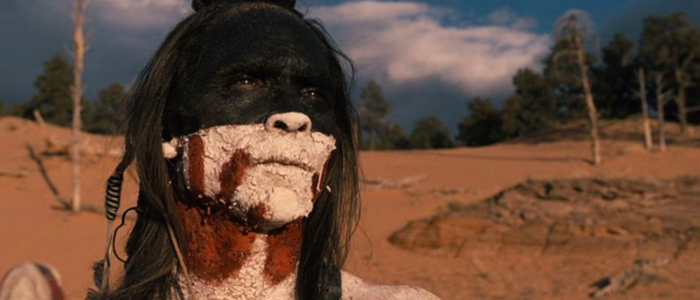
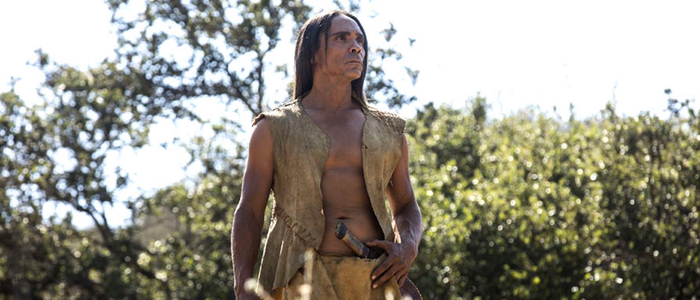
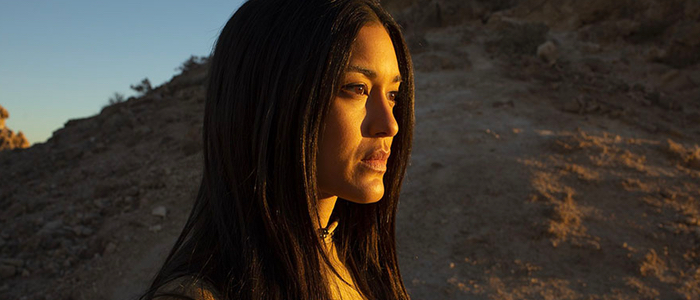
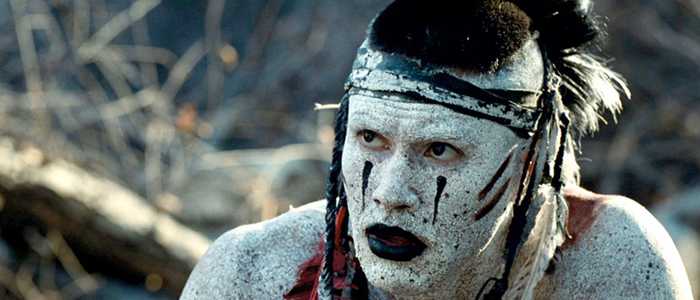
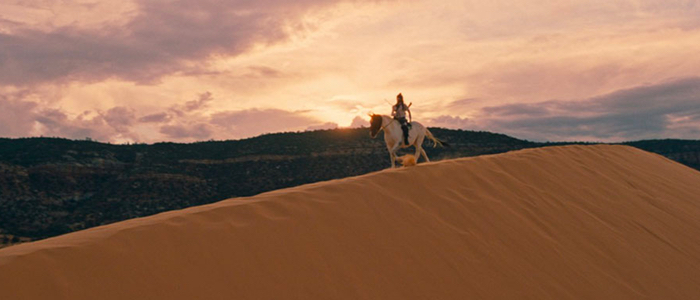
No comments: